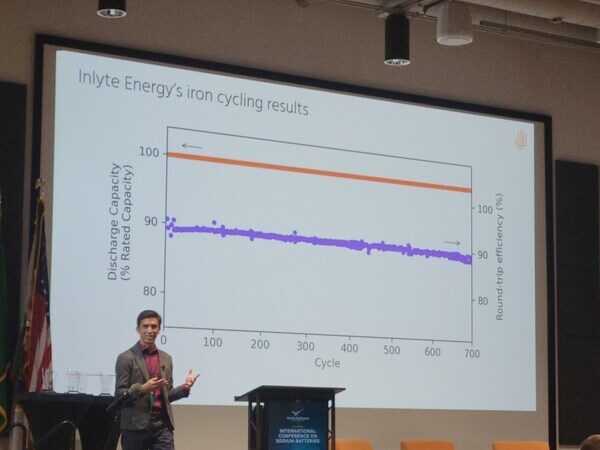Solar technology is popular among homeowners in Ireland availing themselves of government grants to retrofit their homes.
The Sustainable Energy Authority Ireland (SEAI), the organization in charge of delivering Ireland’s national retrofit plan, published its latest progress report which covers the first nine months of 2024, or until the end of the third quarter.
Ireland’s retrofitting plan encompasses several schemes, ranging from fully funded to partially funded. The Solar PV Scheme, offered as part of the plan, is experiencing strong demand, the SEAI said.
The scheme offers recipients a maximum of €2,100 ($2,200) to add solar panels to their home. They get eight months to do so, or the grant expires. They can choose from a list of installers approved by the SEAI, but before any installations are carried out, the installer must apply to ESB Networks to connect the panels to the grid.
When the installation is complete, the homeowner must obtain a Building Energy Rate (BER) from the SEAI certifying their newly retrofitted home’s energy efficiency rating on a scale of A1 (the highest) to G (the lowest). The installer must supply the appropriate documentation proving they carried out the work and only then the grant is processed and paid.
New applications for the Solar PV scheme are at an all time high – more than 21,000 at the end of the third quarter of 2024, up 13% on the same period last year, the organization recorded. Unfortunately for homeowners, there will be a change in the Solar PV grant amount effective from Jan. 1, 2025.
The maximum grant value will be reduced from the current cap of €2,100 to €1,800. The grant will be reduced by €300 every year in line with what the government predicts will be falling panel prices. The Irish Solar Energy Association (ISEA) has called on the government to reverse the planned cuts, pointing out that they were discouraging homeowners from applying for grants, thereby undermining the country’s progress on achieving its renewable energy targets.
“The number of grant applications saw a sharp decline from December 2023 to January 2024, a clear indication that these cuts are already discouraging households from installing solar panels,” the ISEA stated. However, the more recent data from the SEAI shows people are possibly looking to capitalize on the last few months of the higher grant amount. Furthermore, the SEAI expects the number of solar home upgrades in Q4 will also increase substantially, and the average number of monthly applications is increasing consistently month by month.
There was a total of 38,000 upgrades made across all retrofit schemes, including those for home heating systems, community energy grants, and general home energy upgrades, during the first nine months of 2024. This represents an 11% increase on the same period in 2023. Government expenditure across all schemes reached €279 million, up 34% year on year. Of the homes upgraded, 5,255 were energy-poor homes which benefited from totally free energy upgrades.
Commenting on the data, the SEAI’s National Head of Retrofit, Ciaran Byrne, singled out solar. “As has been the case for some time now solar PV is proving a very attractive technology for homeowners.
“And while application levels in some of the schemes have been somewhat flat in the most recent quarter, there has also been a general uplift in application levels towards the end of the quarter and into Q4. This is likely because during the summer months homeowners’ focus is often elsewhere. It is only when the colder weather arrives that homeowners focus tends to return to retrofit.”
It may be too soon to see if the soon-to-be-enforced reduction of the grant for homeowners applying to the Solar PV scheme will make a difference in future uptake. According to Byrne, the SEAI has increased support measures for heat pump systems in 2024, with the introduction of a training program for heat pump installers. The SEAI is also rolling out a low-interest residential energy upgrade loan scheme which includes solar installations under its remit.
The scheme provides government-backed loans from €5,000 to €75,000 for a term of up to 10 years. The approved loans can be drawn before works begin for deposits or milestone payments, and homeowners can also spend up to a quarter of the loan on non-energy related works.
From 2015 to November 2024, there has been a total of 419,498 energy upgrade measures installed, according to SEAI data. Of that number, 70,091 have been implemented under the Solar PV Scheme. This includes 3,236 batteries and 66,855 solar PV systems.
This content is protected by copyright and may not be reused. If you want to cooperate with us and would like to reuse some of our content, please contact: editors@pv-magazine.com.




By submitting this form you agree to pv magazine using your data for the purposes of publishing your comment.
Your personal data will only be disclosed or otherwise transmitted to third parties for the purposes of spam filtering or if this is necessary for technical maintenance of the website. Any other transfer to third parties will not take place unless this is justified on the basis of applicable data protection regulations or if pv magazine is legally obliged to do so.
You may revoke this consent at any time with effect for the future, in which case your personal data will be deleted immediately. Otherwise, your data will be deleted if pv magazine has processed your request or the purpose of data storage is fulfilled.
Further information on data privacy can be found in our Data Protection Policy.